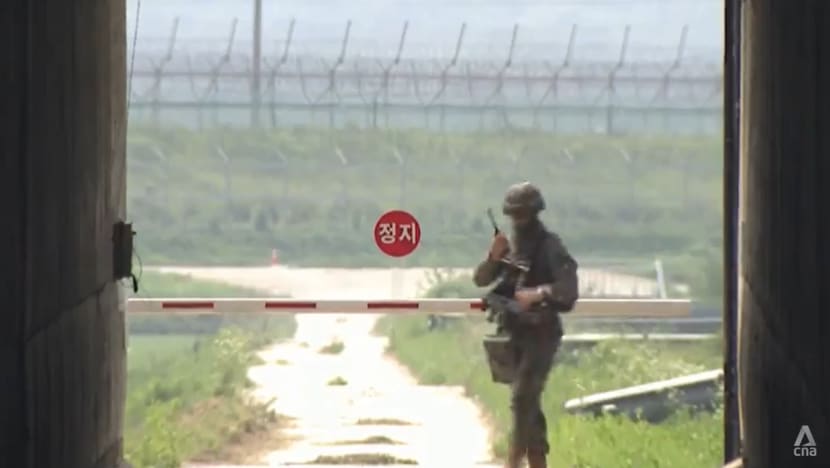South Koreans express mixed feelings over balloon warfare with North Korea
However, most South Koreans do not appear to believe the current escalations will lead to another conflict on the Korean Peninsula.

Some South Koreans in Daedong near a heavily militarised border are worried about the psychological warfare between the two Koreas.

This audio is generated by an AI tool.
PAJU, South Korea: Some South Koreans who live in the quiet village of Daedong are getting worried about the tensions between North and South Korea.
Daedong is about an hour’s drive from South Korean capital Seoul, in Paju, Gyeonggi Province, near a heavily militarised border.
Many of the roughly 300 Daedong residents are elderly South Koreans, who made the village their home after the end of the Korean War in 1953.
Among those concerned is 58-year-old Park Young-jin, head of Daedong-ri, and one of the youngest residents of the village.
He fears any impact to his livelihood as he works at the villagers’ rice field across barbed wires.
"I have to pass through a tunnel to bring in my farming equipment. However, if there is a standoff or a slight increase in danger, such as fog or other risks, they (soldiers) do not allow us to go out,” he told CNA.
“The soldiers stop us because if we go out and something happens to us like we get hurt, they would be held responsible."
Farmers were prevented from working in the fields many times in the past when tensions were high, although this has not happened since 2018, despite recent escalations.
TENSIONS BETWEEN THE TWO SIDES
The psychological warfare between the two Koreas in recent weeks has been marked by balloons filled with trash or anti-propaganda leaflets, and loudspeaker broadcasts across the border.
Some South Koreans have taken to the streets to hold press conferences and rallies to urge the South Korean government to reduce the tension.
Residents living along the border have also been holding protests because they are afraid that South Korea’s retaliation could provoke stronger reaction from North Korea - for instance, firing at balloons.
This fear is partly grounded on North Korea’s announcement earlier this year that reunification is no longer possible, and that its constitution will be changed to designate the other side as its principal enemy.
SOME KOREANS LESS WORRIED
Some, however, are less perturbed.
Madam Jang Seok-geum, an 87-year-old who lived through the Korean War from 1950 to 1953, said she is not fearful of the threats from North Korea but worries for the younger generation.
"I was 13 years old when the Korean War broke out. I have lived here all my life and grown old here. The children are pitiful. It feels like there might be a war again,” she said.
However, the majority of South Koreans do not appear to believe the current escalations will lead to another conflict on the Korean Peninsula.
Rather, they are seen as just some of many tit-for-tat actions between the two Koreas, which remain technically at war.
Mr Cho Chang-hyun, who grew up in Daedong and now lives in Seoul, said that people are not as worried as they used to be about tensions between the two sides.
“Back then, we had limited tanks and weapons, which made us worried and troubled. Nowadays, our country has advanced significantly in terms of weapon development, not to mention economically,” he/she said.
“Additionally, our alliances with friendly nations are much stronger than before. Therefore, from our perspective, there is not much to worry about. Even if a war breaks out."


















